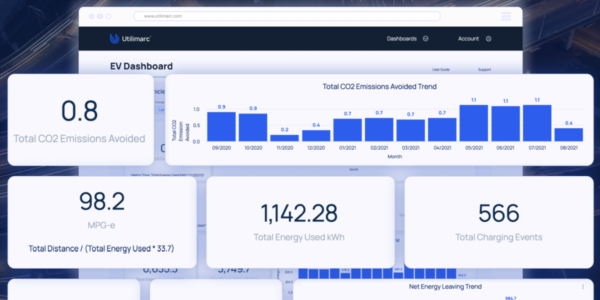
One of the greatest benefits of implementing business intelligence is the ability to turn disconnected data systems into actionable insights. Once fleet data is streamlined and cleaned, BI bridges the gap between the initial point of data collection to seeing data-driven results.

The common goal of fleet sustainability is twofold. First, to adopt practices that protect the wellbeing and future of the world around us. Second, to ensure the future success of your organization. This is appealing for organizations striving to be more conscientious with their practices while still reducing waste and costs internally.

Fuel is one of the biggest capital spends for any fleet, so detailed reporting on fuel spend is always important. As fuel prices rise, however, ensuring that reports are accurate is critical to a successful fleet budget and preventing fuel fraud.

Sustainability is interwoven into futureproofing for many reasons. At its core, the idea and goal of sustainability is to carry out our actions and meet our needs without jeopardizing the ability of future generations doing the same. This is essentially the same goal as futureproofing, no?

Recently, in partnership with Consumer’s Energy, we ran a survey to learn more about how fleets are changing their take-home policies (if at all), especially as we exit a pandemic and move into a new year.

It’s no secret that managing an EV fleet comes with its own unique challenges. From maintenance training to new data streams, adjusting metrics to lowering emissions – there’s a lot to take in. Breaking down new metrics and data streams in an intuitive dashboard can help you make a seamless transition to electric.

In order to gather more information on what fleets across North America are doing to minimize risky driving behavior and train safer drivers on the road, Utilimarc has partnered with DTE Energy to run a survey to asses what aspects of fleet safety are most important to managers – from policies to equipment, how they’re training drivers or if they are using incentives to achieve their results.

High quality data can be tricky to recognize as valuable at first glance. It isn’t a tangible asset that goes out to job sites on a daily basis. It is, however, one of the most impactful tools a fleet manager can have when it comes to spotting opportunities and tracking progress toward goals.

There are two ways someone can gain the status of a true fleet data analyst. By spending years in the fleet industry garnering deep domain expertise, or by utilizing business intelligence as your secret weapon.